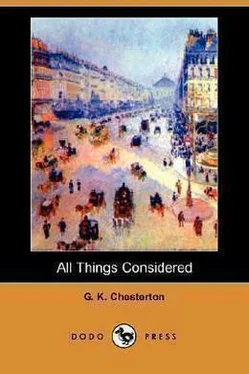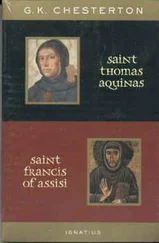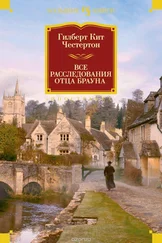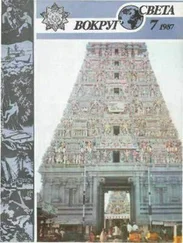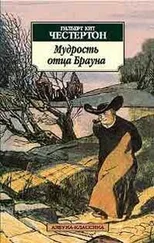Naturally, an outsider feels inclined to ask why Eatanswill should be either one or the other. As a matter of fact, I fear Eatanswill was every town in the country. It is surely clear that when Dickens described the Eatanswill election he did not mean it as a satire on Sudbury or a satire on Ipswich; he meant it as a satire on England. The Eatanswill election is not a joke against Eatanswill; it is a joke against elections. If the satire is merely local, it practically loses its point; just as the "Circumlocution Office" would lose its point if it were not supposed to be a true sketch of all Government offices; just as the Lord Chancellor in "Bleak House" would lose his point if he were not supposed to be symbolic and representative of all Lord Chancellors. The whole moral meaning would vanish if we supposed that Oliver Twist had got by accident into an exceptionally bad workhouse, or that Mr. Dorrit was in the only debtors' prison that was not well managed. Dickens was making game, not of places, but of methods. He poured all his powerful genius into trying to make the people ashamed of the methods. But he seems only to have succeeded in making people proud of the places. In any case, the controversy is conducted in a truly extraordinary way. No one seems to allow for the fact that, after all, Dickens was writing a novel, and a highly fantastic novel at that. Facts in support of Sudbury or Ipswich are quoted not only from the story itself, which is wild and wandering enough, but even from the yet wilder narratives which incidentally occur in the story, such as Sam Weller's description of how his father, on the way to Eatanswill, tipped all the voters into the canal. This may quite easily be (to begin with) an entertaining tarradiddle of Sam's own invention, told, like many other even more improbable stories, solely to amuse Mr. Pickwick. Yet the champions of these two towns positively ask each other to produce a canal, or to fail for ever in their attempt to prove themselves the most corrupt town in England. As far as I remember, Sam's story of the canal ends with Mr. Pickwick eagerly asking whether everybody was rescued, and Sam solemnly replying that one old gentleman's hat was found, but that he was not sure whether his head was in it. If the canal is to be taken as realistic, why not the hat and the head? If these critics ever find the canal I recommend them to drag it for the body of the old gentleman.
Both sides refuse to allow for the fact that the characters in the story are comic characters. For instance, Mr. Percy Fitzgerald, the eminent student of Dickens, writes to the Eatanswill Gazette to say that Sudbury, a small town, could not have been Eatanswill, because one of the candidates speaks of its great manufactures. But obviously one of the candidates would have spoken of its great manufactures if it had had nothing but a row of apple–stalls. One of the candidates might have said that the commerce of Eatanswill eclipsed Carthage, and covered every sea; it would have been quite in the style of Dickens. But when the champion of Sudbury answers him, he does not point out this plain mistake. He answers by making another mistake exactly of the same kind. He says that Eatanswill was not a busy, important place. And his odd reason is that Mrs. Pott said she was dull there. But obviously Mrs. Pott would have said she was dull anywhere. She was setting her cap at Mr. Winkle. Moreover, it was the whole point of her character in any case. Mrs. Pott was that kind of woman. If she had been in Ipswich she would have said that she ought to be in London. If she was in London she would have said that she ought to be in Paris. The first disputant proves Eatanswill grand because a servile candidate calls it grand. The second proves it dull because a discontented woman calls it dull.
The great part of the controversy seems to be conducted in the spirit of highly irrelevant realism. Sudbury cannot be Eatanswill, because there was a fancy–dress shop at Eatanswill, and there is no record of a fancy–dress shop at Sudbury. Sudbury must be Eatanswill because there were heavy roads outside Eatanswill, and there are heavy roads outside Sudbury. Ipswich cannot be Eatanswill, because Mrs. Leo Hunter's country seat would not be near a big town. Ipswich must be Eatanswill because Mrs. Leo Hunter's country seat would be near a large town. Really, Dickens might have been allowed to take liberties with such things as these, even if he had been mentioning the place by name. If I were writing a story about the town of Limerick, I should take the liberty of introducing a bun–shop without taking a journey to Limerick to see whether there was a bun–shop there. If I wrote a romance about Torquay, I should hold myself free to introduce a house with a green door without having studied a list of all the coloured doors in the town. But if, in order to make it particularly obvious that I had not meant the town for a photograph either of Torquay or Limerick, I had gone out of my way to give the place a wild, fictitious name of my own, I think that in that case I should be justified in tearing my hair with rage if the people of Limerick or Torquay began to argue about bun–shops and green doors. No reasonable man would expect Dickens to be so literal as all that even about Bath or Bury St. Edmunds, which do exist; far less need he be literal about Eatanswill, which didn't exist.
I must confess, however, that I incline to the Sudbury side of the argument. This does not only arise from the sympathy which all healthy people have for small places as against big ones; it arises from some really good qualities in this particular Sudbury publication. First of all, the champions of Sudbury seem to be more open to the sensible and humorous view of the book than the champions of Ipswich—at least, those that appear in this discussion. Even the Sudbury champion, bent on finding realistic clothes, rebels (to his eternal honour) when Mr. Percy Fitzgerald tries to show that Bob Sawyer's famous statement that he was neither Buff nor Blue, "but a sort of plaid," must have been copied from some silly man at Ipswich who said that his politics were "half and half." Anybody might have made either of the two jokes. But it was the whole glory and meaning of Dickens that he confined himself to making jokes that anybody might have made a little better than anybody would have made them.
Some solemn and superficial people (for nearly all very superficial people are solemn) have declared that the fairy–tales are immoral; they base this upon some accidental circumstances or regrettable incidents in the war between giants and boys, some cases in which the latter indulged in unsympathetic deceptions or even in practical jokes. The objection, however, is not only false, but very much the reverse of the facts. The fairy–tales are at root not only moral in the sense of being innocent, but moral in the sense of being didactic, moral in the sense of being moralising. It is all very well to talk of the freedom of fairyland, but there was precious little freedom in fairyland by the best official accounts. Mr. W.B. Yeats and other sensitive modern souls, feeling that modern life is about as black a slavery as ever oppressed mankind (they are right enough there), have especially described elfland as a place of utter ease and abandonment—a place where the soul can turn every way at will like the wind. Science denounces the idea of a capricious God; but Mr. Yeats's school suggests that in that world every one is a capricious god. Mr. Yeats himself has said a hundred times in that sad and splendid literary style which makes him the first of all poets now writing in English (I will not say of all English poets, for Irishmen are familiar with the practice of physical assault), he has, I say, called up a hundred times the picture of the terrible freedom of the fairies, who typify the ultimate anarchy of art—
Читать дальше
